Michele Castro's mother and brother both passed away from early onset Alzheimer’s before age 60. In her 40s, Castro took a genetic test and learned that she, too, has the PSEN1 gene — a gene that spikes her risk of developing the disease herself. Now, she's fighting for a brighter future for her and her children and grandchildren.
This article is part of the series Diversity & Dementia, produced by Being Patient with support provided by Eisai.
Michele Castro’s mother and brother both passed away from early onset Alzheimer’s before the age of 60. In 2015, when Castro was in her 40s, she took a genetic test and learned that she, too, had inherited the PSEN1 genetic mutation — a gene associated with such high risk of early onset Alzheimer’s that it nearly guarantees that she too will develop the disease one day. And as of now, she has five other family members who’ve died of Alzheimer’s later in life. Through advocacy, she’s fighting back.
For the past six years, Castro has dedicated herself to education and advocacy in her community. Working with her local Alzheimer’s Association chapter as an advocate and as an Alzheimer’s congressional team member, her work has focused on building funding and support programs with federal, state, and local legislators. Her brother’s story, in particular, was part of a proposal by Senator Bob Casey’s [D-PA] that became a law, allowing those with early-onset Alzheimer’s to access resources from the Older Americans Act. While Castro is currently on hiatus with her local Alzheimer’s Association on a leave of absence for work, her colleagues are continuing to push for legislation to support people living with Alzheimer’s, especially those in the Latino community.
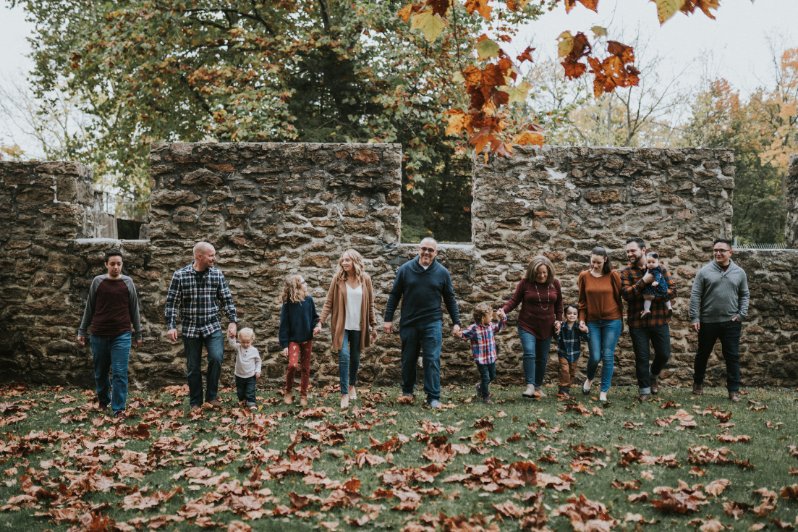
“Part of my brother’s story is in the parameters of why that needed to pass,” Castro told Being Patient. “Now, anyone under 60 if they are exhibiting early onset or younger onset, they will have the capability of accessing those services that are offered to more older Americans.”
Latino and Hispanic populations — which is Castro’s family background — have a high risk for Alzheimer’s, yet few are included in clinical trials. With early onset Alzheimer’s rates rising over the last couple of years, more advocates are pushing for more equity in research and more support for the communities impacted.
In this conversation with Being Patient EIC Deborah Kan, she talks about her personal experience with her mother and brother’s Alzheimer’s, about living with the PSEN1 gene, and about her work advocating for families like hers. Read the conversation or watch the full video below.
Being Patient: Let’s talk a little bit about your journey with finding out that hereditary link. Who in your family has had Alzheimer’s disease?
Michele Castro: There’s been a multitude of family members, and I knew you were going to ask me this question. I started jotting down because when you start thinking about, “Wait, who else had Alzheimer’s in the family?” the list becomes longer and longer every time I start trying to process. From a perspective of not younger onset, it’s a total of seven family members that have since passed from Alzheimer’s at a later age.
Being Patient: At what point were you suspicious that there may be a hereditary link to Alzheimer’s? Obviously, seven people is a lot. Was this immediate family or a little bit further away?
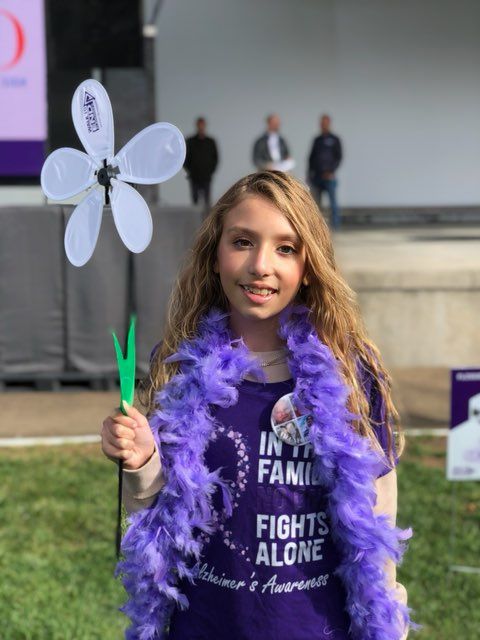
Castro: It’s grandparents, both paternal grandmother and grandfather, and then aunts on the paternal side as well. From the younger onset, it’s on my mother’s side. She was exhibiting science, which at that time, we didn’t even know what was going on with her. She was suffering from extreme agitation. This is someone that worked in New York City on the HUD, the Housing and Urban Development Section Eight housing, where the South Bronx was rebuilding and ran successfully as a manager of section eight housing to provide occupancy for a variety of different occupants.
“We didn’t know, or I didn’t know,
until she was up in the nursing home,
and I started reading her chart.”
As time went on, we started seeing changes in her, but we didn’t at all think that it was Alzheimer’s because my mom was in her 40s at the time. She eventually passed at 59. We didn’t know, or I didn’t know, until she was up in the nursing home and I started reading her chart. There it said that she was already exhibiting Alzheimer’s. They had done a spinal tap on her, and I was able to get a copy of her results, which identified the PSEN1 marker.
Being Patient: For people who don’t know the PSEN1 marker, there’s [PSEN1 and PSEN2], and then there’s APP, and those are the known identified early onset markers. Most people who carry those markers end up with Alzheimer’s. There are lifestyle factors, but it’s a determinant gene. When you found that out, Michele, that must have been really difficult for you, and did you know what that all meant?
Castro: Not at all. Unfortunately, at that time, whenever she had an episode, she would wind up in psych. Like we would call 911, and that’s where they would take her. I would go see her there every day until she was discharged. That went back and forth for years. It wasn’t until she was in the nursing home, as I indicated, that they really identified what was going on. At that point, she was already in the final end stage. She passed away, weighing 73 pounds. Seeing her that way and seeing her deteriorate slowly, I was still not understanding what was going on. Then she passes, and life goes on, right? Then because of my mother, my sister-in-law, my brother’s wife, my brother, who is deceased, she started doing a lot of research.
She’s into health, organic, all that. As a result of that, she and I began speaking, and he also started educating me a little bit on what your brother potentially can develop. So, to avoid guessing, he decided, “I’m just going to bite the bullet, and I’m going to get the spinal tap,” which he did. My brother worked for the FDNY in New York City. He was a first responder for 9/11. What I tell everyone when I speak is like what 9/11 didn’t do, Alzheimer’s did. He was my brother, he was my older brother. As a result of this spinal tap, he was diagnosed at 43 that he also had the genetic marker.
Now, he didn’t start showing symptoms until his late 40s — 48 to 50, around that range. At that point, he had worked, and he had taught at home for the FDNY for years, and my sister-in-law was getting concerned that he might get that one call where he will forget or that something is out of the norm, and that, as a result of that, someone may lose their life, right? So, she made the decision along with him and us as siblings to kind of say you need to do early retirement because we don’t want to risk you, we don’t want to risk the family, and we need to start focusing on you. That’s how all that came about.
Being Patient: How long was it before he passed away?
Castro: He passed away at 58.
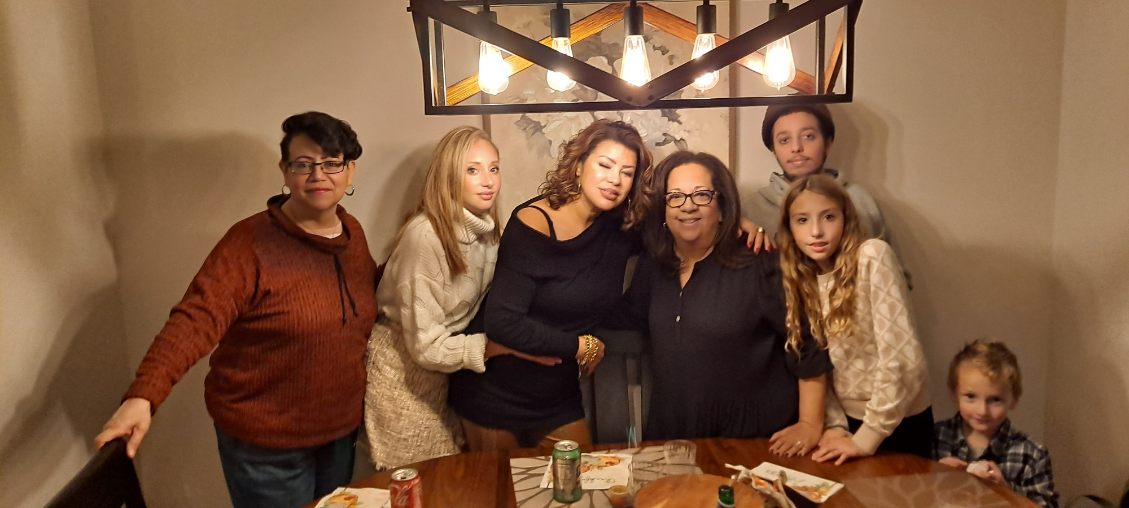
Being Patient: Tell us a little bit about how you came to that decision to actually look into your own genetic status.
Castro: My husband and I would provide respite care from my brother and give my sister a break. They would drive up from New York, and the minute she walked in, we would take over caring for my brother. He was still conversational. I had to use tricks to get him to take his meds and things like that. But it was really giving my sister-in-law the opportunity to have that rest that she so needed because, you know, you’re on 24 hours when you’re caring for someone. There’s no rest in between any of that. As I saw him through the years continuing to decline, that’s when I realized, “OK, this is serious.”
“I, too, had the PSEN1 genetic mutation,
which was not the news that I wanted to hear,
but I was prepared to hear it if that was.”
I’m an HR manager, so I’m a planner [and I like] everything structured. My husband and I made the decision after my brother passed because I had his spinal tap results. The good thing is that I was already in counseling, just to kind of figure out how to mitigate my mother’s situation, my brother’s situation, what’s going to happen, the unknown, right? That will help me facilitate. I went to UPenn in Philadelphia, where I met with a genetic counselor. All I had to do, thankfully, was a blood draw. The results came back that I, too, had the PSEN1 genetic mutation, which was not the news that I wanted to hear, but I was prepared to hear it if that was.
Being Patient: That was in 2015, and you were in your 40s then. Do you exhibit any signs of Alzheimer’s now?
Castro: Thankfully, no. I do go to UPenn, where I decided to stay. I decided to stay there because of the advances. They have a whole Alzheimer’s wing. I knew that from a care perspective, anytime I tried to do it in my area, they’ll be like, “Well, who’s the patient?” and I’m like, “I’m the patient.”
Iust chalked it up, and so I’m just gonna go to UPenn. I test every year. I just recently had a test about three weeks ago.
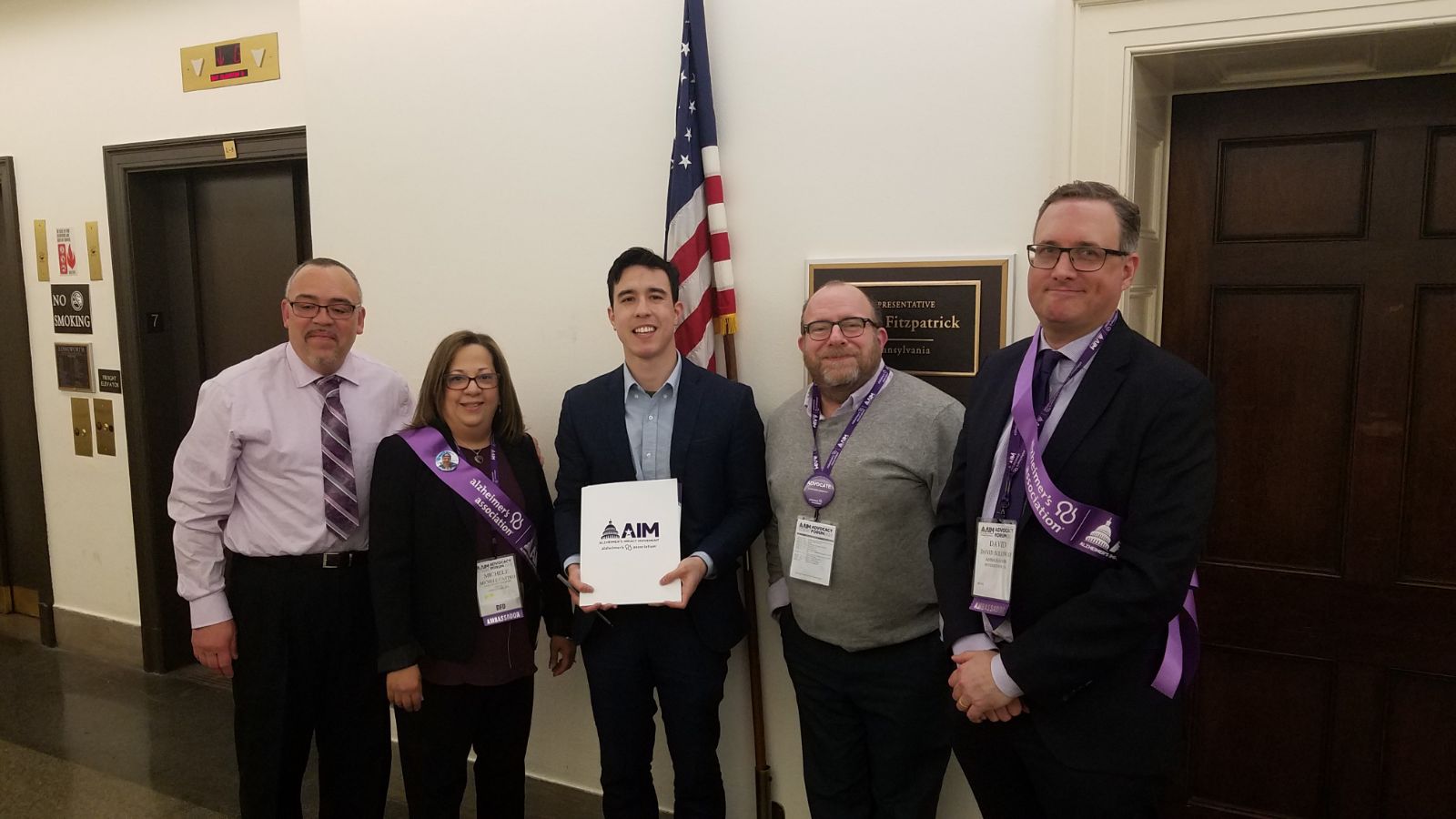
Being Patient: Do you test for biomarkers like plaque or tangles?
Castro: It is more [to] monitor if you’re progressing. If you’re not, it’s a series of tests that you have to go through. In the end, you know, I meet with a doctor, and then he tells me, “Still good, no worries, we’ll see you again in a year.”
Then he moved us every six months because one of my tests declined considerably. I told him and argued with him [that I was tired that day]. That’s why [I didn’t] score well, and he was like, “I want to see every six months.” I did that. For my last visit a few weeks ago, I said, “OK, I got 30 out of 30.” So, I’m coming in a year, I’m not coming back at six.
Being Patient: They’re actually giving you cognitive screening to see if there’s been any progression, but they’re not doing things like checking for biomarkers. Is that correct?
Castro: No. I’ve tried to get in a couple of trials. But there are a lot of people, so I understand why sort of selections are not being made, and I’m OK with that.
Being Patient: What types of trials are you trying to get into?
Castro: The University of St. Louis, they had a trial for younger onset. It’s basically similar to what [Phil Gutis] was going to do, and his long journey to kind of stabilize a little bit more.
At this point, I take every day as a blessing. I’m a fighter. I’ve been a fighter all my life. By that, I mean I’m not a quitter, I’m going to if I can do anything and everything to spread the word to make a difference. I’m going to do that, but I also have a full-time job, so I have to try to balance.
“I’m not a quitter, I’m going to
do anything and everything to
spread the word to make a difference.”
Being Patient: Do you have children, Michele?
Castro: I do. I have five children and now eight grandchildren.
Being Patient: Did you have a discussion with your children about getting tested for this biomarker? How do they feel about this?
Castro: I did have a discussion with my husband first, and then the kids. They were all at that point, somewhere in college, so [my brother had] already died. We made the decision to let them know. It wasn’t, “Hey, should I do this?” it was, “I’m doing this.”
Same thing with my brother’s. My brother has two children. My niece and my nephew. My nephew recently graduated with his master’s from Columbia. He’s dedicated himself to social services in New York City, surrounding older Americans in the senior population. Then my niece went to Sarah Lawrence, and she has her bachelor’s and master’s in dance therapy. Unfortunately, she hasn’t been able to obtain a position in New York City where she can work with the older population with that type of therapeutic process.
Getting back to my children, I made the decision, and they understood why I was making it. My brother’s children will not get tested, they have no interest in wanting to. That’s a personal decision for everyone. You have to be strong of mind to be prepared to hear that you may have the mark. That’s not easy for everyone.
Being Patient: Have any one of your five children gotten tested as well?
Castro: They don’t want to.
Being Patient: I can’t imagine being younger and making the choice to be tested, it’s even more scary. Now that you know, you have the gene, you’re obviously incredibly well educated and have personal experience with Alzheimer’s disease with so many family members impacted. Have you made any changes to your lifestyle?
Castro: I go up and down because I like to eat. That’s a fact, so I try to throw in there some vegetables and fruits and try to remind myself: balance yourself better. Don’t go only for the pasta and all the fattening foods. I’m not a drinker, I’m not a smoker, I never thought of that anyway. I think that’s a good thing on my end.
“You have to be strong of mind to be
prepared to hear that you may have
the mark. That’s not easy for everyone.”
What I’m struggling with as of late is my sleeping patterns. There’s a lot going on at work, too, so that’s part of it. I wake up at least two to three times a night, and then I’ll walk around for a little bit of watching the news, or I’ll start reading something, and then I fall back asleep. The key thing is also making sure that you’re getting the proper rest. I try to do that. I’m a Napper. I love taking naps, that helps me. I’m hoping that any of those types of things that I’m trying to do are helping in between.
Being Patient: One of the things we hear a lot from people is they’re afraid to have their genetic status out there because of their work or colleagues, insurance, and all of that. Were you afraid to put it out there and tell the world basically that, that you carry this marker?
Castro: Initially, I was because there’s that stigma of, “Oh, is she gonna forget to sign whatever.” Then, as I started educating myself and I got so heavily ingrained in the Delaware Valley Chapter of the Alzheimer’s Association, I really started learning more from an educational standpoint. I took the high road of “I don’t care.” Quite frankly, this is my story. I know I’m fine, and I am just going to continue as long as I can from a working perspective until one day. Hopefully, that works out. If it does, then so be it.
I do work. Again, I’m an HR manager. I’ve done International, and at that point, I knew that I had a genetic mutation. I service multiple countries for a pharmaceutical company in the past, and most of my time now takes me more to the manufacturing arena. This is it for me. I get recruited a lot, but this is the longest I’ve been at a job. Because at this point, I just want to stay put, especially with my age and things.
Being Patient: Tell us a little bit about your advocacy work because we know Alzheimer’s is a disease that needs more diversity in participation in research. Coming from the Hispanic community, tell us a little bit about your experience in advocacy and trying to change the narrative for populations of color.
Castro: A lot of it was really focused on meeting with my members of Congress, as well as the Senate. [It’s] really kind of saying my story, the story itself is more than enough, great because it allows people to understand the compassion. Then they see someone who might face it, and they’re like, well, she’s young, and I can see it in their face. I know they’re thinking that.
In the end, that collaboration has worked well. Senator Casey, a couple of times, has tapped me on the shoulder to do a narrative for a particular bill he’s trying to pass or present, and those have been passed into law. Congresswoman Wiles is my Congresswomen, PA07. She’s never said no to me. All my asks, she signs off on. She even came on her own, not us Congresswoman Wiles but Susan Wiles on one of our walks that we have in the Lehigh Valley. Those relationships I take to heart because not every person who’s in public office really does what they say they’re going to do. I can speak to both of those individuals, that both of them have been there for me 150 percent.
Understanding why that’s important to the Hispanic community, the African American community, and American Indian [is important] because, unfortunately, we’re the larger group that gets younger onset. I will continue to do that until I can’t anymore. My company just went through a huge acquisition, so this last year, from January, I took a break. I said, “I need a one-year hiatus.” I kind of wrote a resignation letter. I love them, all of them. They all gave me so much encouragement.
“Those relationships I take to heart
because not every person who’s in public
office really does what they say they’re going to do”
I had two amazing young ladies under me. One is Anastasia Canal, and she just recently graduated as a doctor, and both her maternal and paternal grandmother to Alzheimer’s and Holly’s Simba, who was actually in my neighborhood. She was also advocating, and now she’s participating in the walk. She’s really out there. Unfortunately, her mother passed within the last year from Alzheimer’s as well. It takes a village, right? I’m taking this break right now until the end of December. I’ll be back with a vengeance, especially because I promised everyone at the 2022 annual event through AIM that I will continue to fight with them until I can’t anymore. I will live up to those [promises].
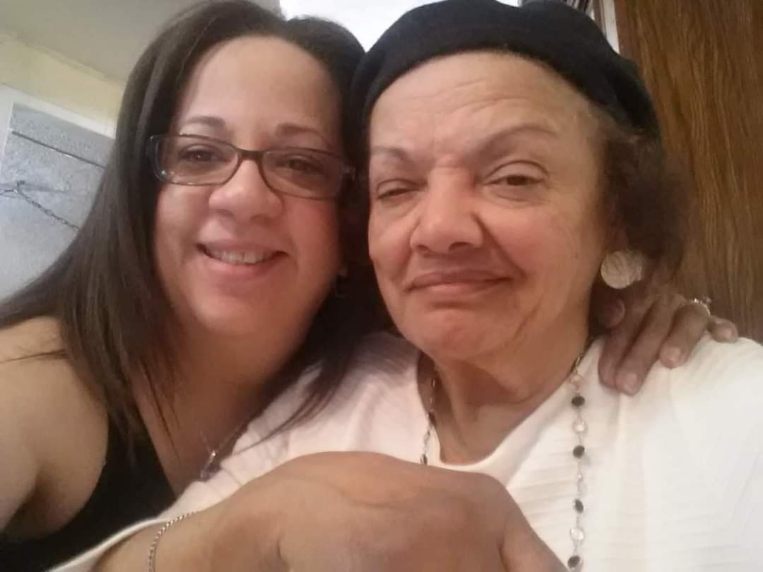
Being Patient: Amazing. What you just pointed out with your colleagues is that it’s hard to find people who aren’t impacted by this disease. It’s so widespread. Tell us a little bit about some of the cultural barriers within Latino and Hispanic populations. With Alzheimer’s, what are you up against?
From a family perspective, and not necessarily my family, but in the past, it’s my culture. The stigma is they’re just getting old. They’re fine. That’s part of aging, right? Now I’m like, “No, it’s not great.” You have to take care of this before it continues to progress and get the services that you’re going to need. It’s more about educating families to say, “Yes, they’re getting older, but they possibly can have Alzheimer’s, and there are services that you could be getting.” There are processes, treatments, things like that. That’s kind of the stigma.
The other thing is, from the younger onset perspective, you hit the nail on the head, right? Which is, “I don’t want [anybody] ever to know that I possibly, someone with a genetic marker, that eventually I can lose my memory.” It’s all of that, and I still encounter even now when I go to the appointments, and they always ask [who is the patient], and I’m the patient. Those types of things.
Within our community, a lot of people don’t want to get tested. The Hispanic community is very loving, caring, but they can also be very private. We don’t want people to know our business. It’s a difference, and I’m not gonna bundle everybody into that circle. But, the older generation, that’s kind of the mindset. I know that when my grandma, who was a second mom to me, passed, she took a lot of secrets to the grave. Where I will ask questions about her parents, who had both of them, the paternal on the paternal side, and she’s like, you need to know about that. Then she keeps walking.
“I don’t know how to change that.
All I can do is continue to talk about it.”
Those types of things that, through education and just being open to understanding, explore that this is a debilitating disease, you’re gonna need to pay attention and understand that we’re trying to help you. I don’t know how to change that. All I can do is continue to talk about it.
Being Patient: In your advocacy work, it looks like you’re focused on government, like lobbying for Congress. Is that right?
Castro: Any act or bill, it could be one of my fellow advocates, area or region, we all are a force to be reckoned with, right? As you can see, I don’t know if he’s on the news or advocates, you know, throughout all the states petitioning CMS to pass. I’m like, they have no idea where they got themselves into. I wasn’t able to participate in any of that because of my hiatus right now, but I’m so proud of my fellow advocates and all the fighting that they did, if not for themselves or a loved one that is no longer here.
With someone that’s declining, it’s so important. Six million Americans are living with Alzheimer’s. That’s not right. It’s already surpassed breast cancer and prostate cancer combined. CMS now is having somewhat of an attention to serious, serious information to really consider and digress. Because it’s out there, the numbers and the data is there to show that it is. Then younger onset, you know, there needs to be a little bit of more focus on that.
For my story also, I’m menopausal right now, so I get a little forgetful. Every time that happens, I’m like, “Oh, my God is starting.” It’s fine, but that’s also something you have to be really strong-willed. I don’t even understand the full complexity of what this disease brings. Currently, right now by 2050, it will be at $1 trillion in costs related to Alzheimer’s disease.
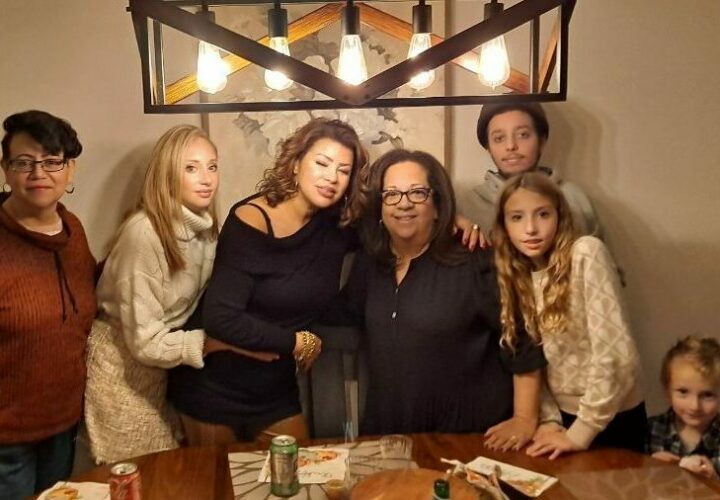
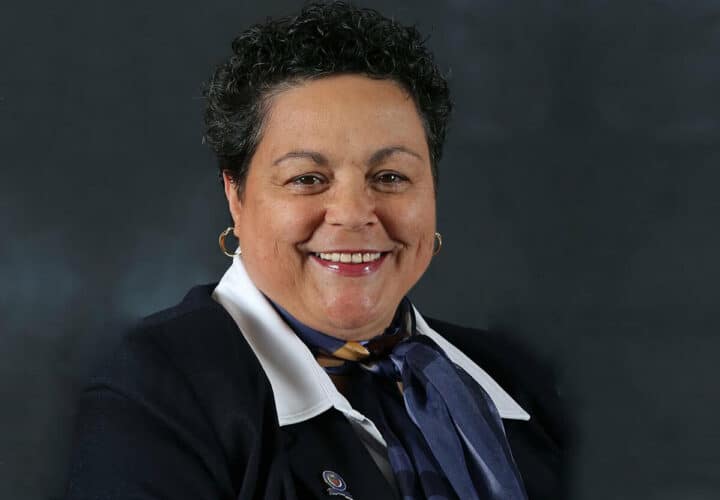
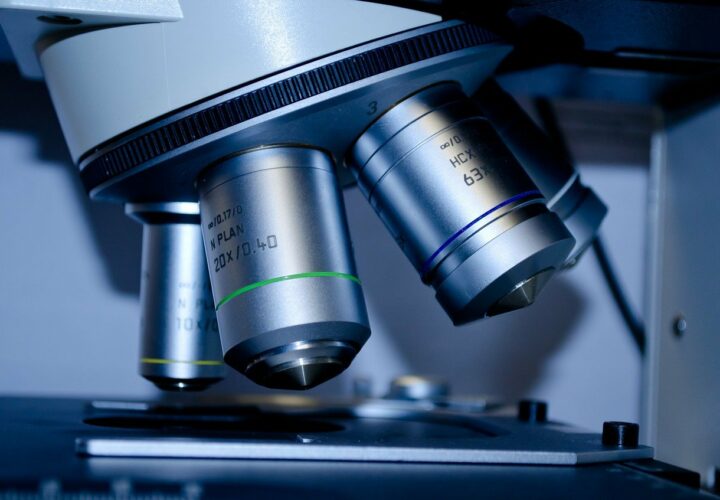

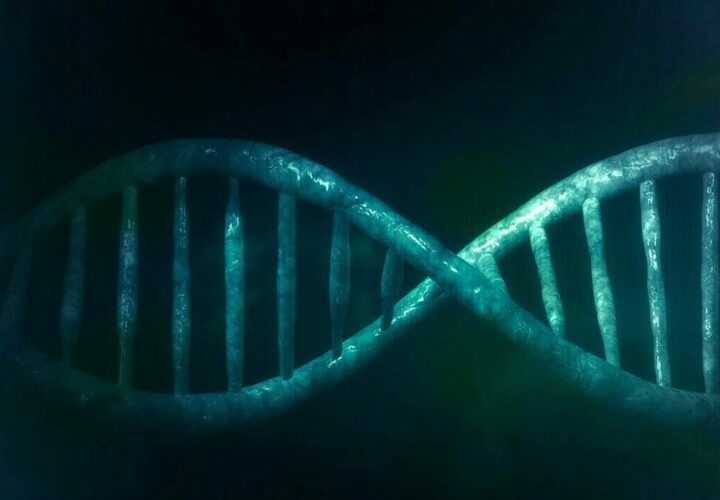
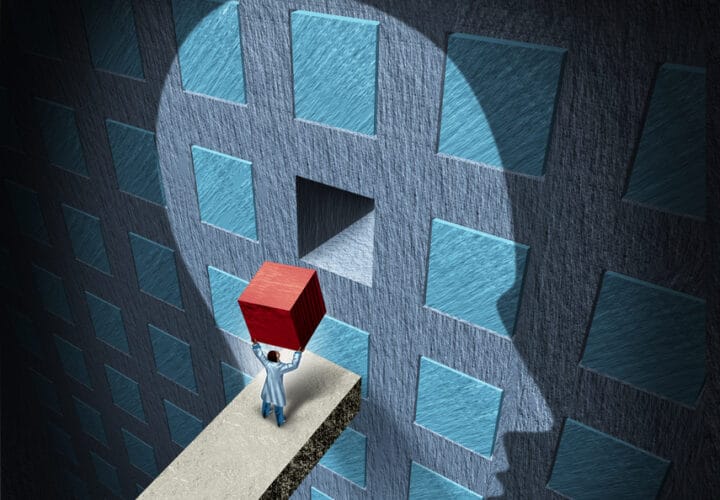
Is Werkes Karsokoff basically the same as Alzheimer’s and if a person continues to drink after being diagnosed does that make them worse faster